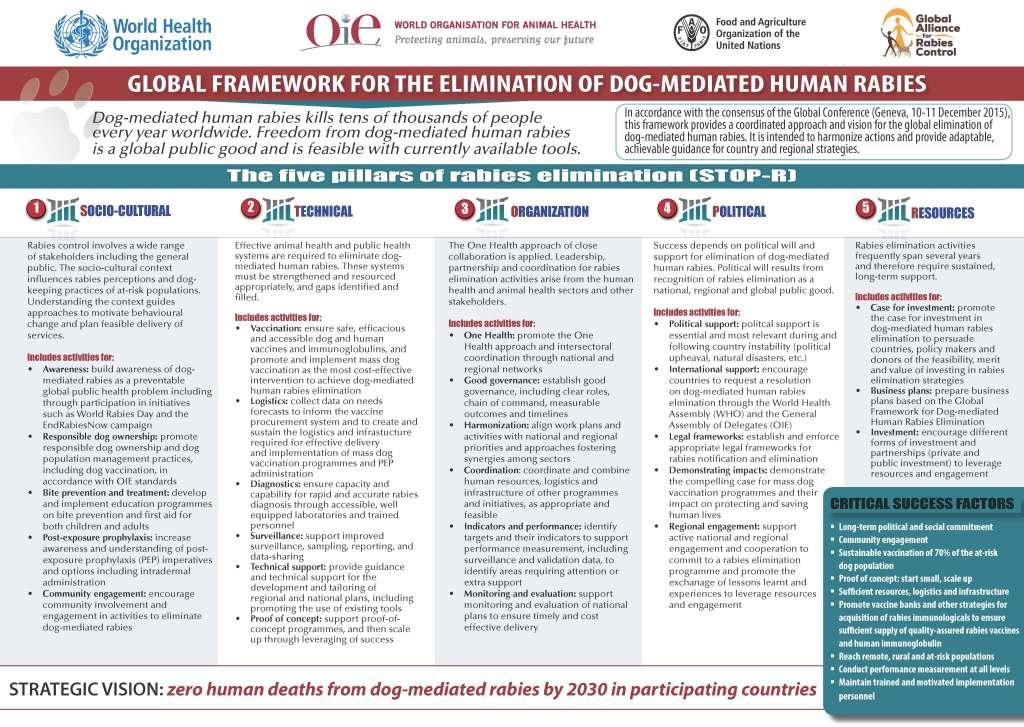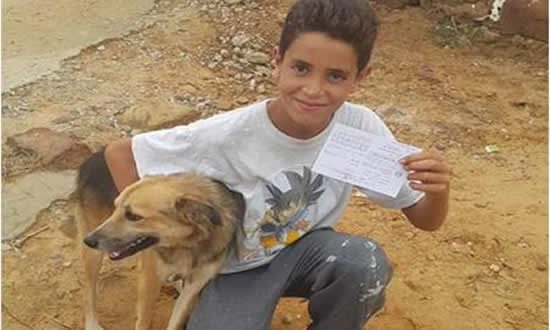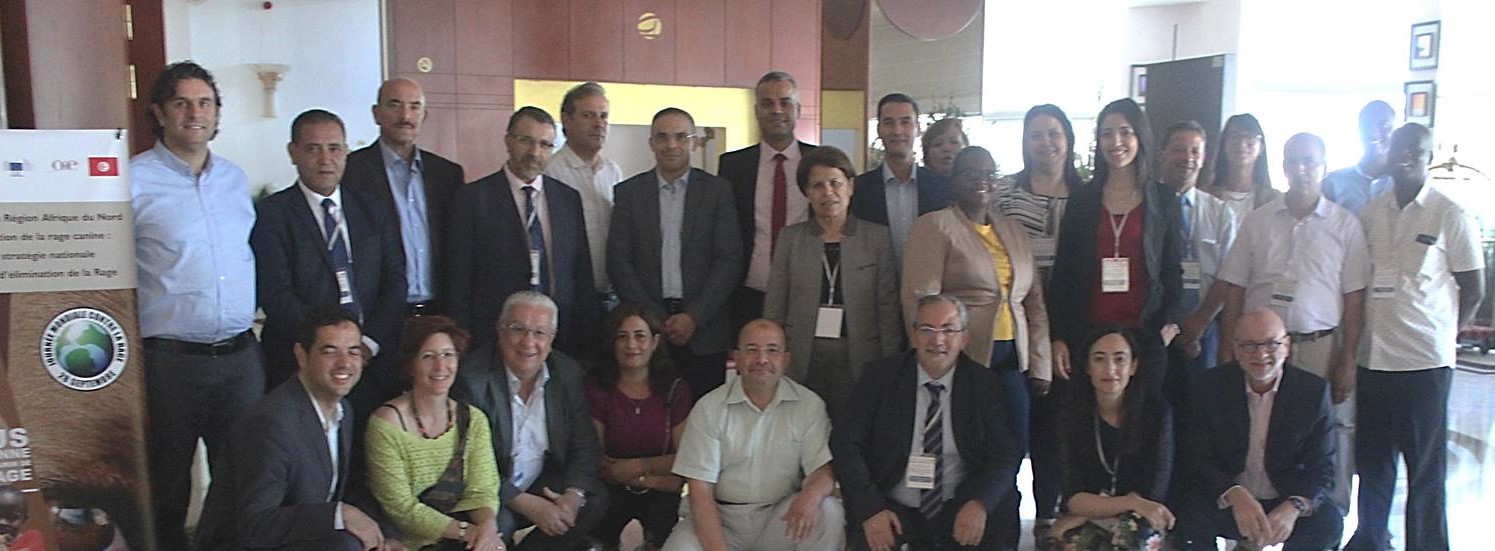
Under the framework of the OIE Project that is supporting pilot actions towards the elimination of dog-mediated rabies in humans in Africa, the OIE held a sub-regional seminar on rabies in north Africa, in Tunis, Tunisia on 24 and 25 July 2019.
The Minister of Agriculture, Hydraulic Resources and Fisheries of Tunisia, Hon. Samir Taïeb, opened officially the meeting by reiterating the commitment of Tunisia to fight against rabies in the framework of One Health approach through the reinforcement of the inter-sectoral collaborations.
The Project component is part of the broader European Union funded Strengthening Veterinary Services in Developing Countries + Rabies (SVSDC+R) Project, which comes to a close in December 2019.
The seminar was attended by about 30 people, comprising of animal and public health experts from Algeria, Morocco and Tunisia, along with representatives of Ministries of the Interior and/or of Local Government Areas, responsible for dog population management in Municipalities.
In addition, the Chief Veterinary Officer and OIE Delegate of Kenya also attended the meeting, along with a representative from the ongoing rabies elimination pilot project in Kenya, managed by the OIE and the Kenya Zoonotic Disease Unit (ZDU), as well as the ongoing rabies elimination pilot project in north Namibia, managed by the OIE, with technical support from the Friedrich-Loeffler-Institut (FLI) and the Veterinary Services of Namibia.
The meeting was also attended by Representatives from national World Health Organization (WHO) country offices in Tunisia and Morocco, as well as an expert from WHO Headquarters (Geneva). Representatives of the OIE offices in Tunis, Nairobi and Paris also contributed to the work programme of the meeting.
The objectives of the seminar were to promote collaboration between the Veterinary, the Public Health and the Local Government authorities under the One Health umbrella, in the control of rabies and to increase political will and promote the elimination of dog-mediated rabies in humans in the Maghreb region, in particular aligning policies and strategies between Algeria, Morocco and Tunisia. These countries had the opportunity to share their epidemiological situation, national strategies, dog vaccination approaches, human PEP (post-exposure prophylaxis) plans, as well as stray dog population control methodologies, so as to also benefit from the experiences of Namibia and Kenya.
After the presentations in plenary session, countries discussed “the five pillars of rabies elimination” (STOP-R) defined within the Global Framework for the Elimination of dog-mediated human rabies in order to highlight strengths, gaps and opportunities for each pillar :
This exercise will help to build national and regional inter-sectoral roadmaps.
This working session also paved the way for a final discussion during which the participants identified several common challenges and solutions in the framework of regional collaboration. Some of them are listed as follows:
The results of this workshop will be presented to the Chief Veterinary Officers (CVO) of REMESA member countries, meeting in Cyprus by the end of 2019.
Group photograph. Picture (c) Mohamed Ben Daya (oie) 2019.
All pictures (c) A. Ripani and P. Bastiaensen (oie) 2019.


